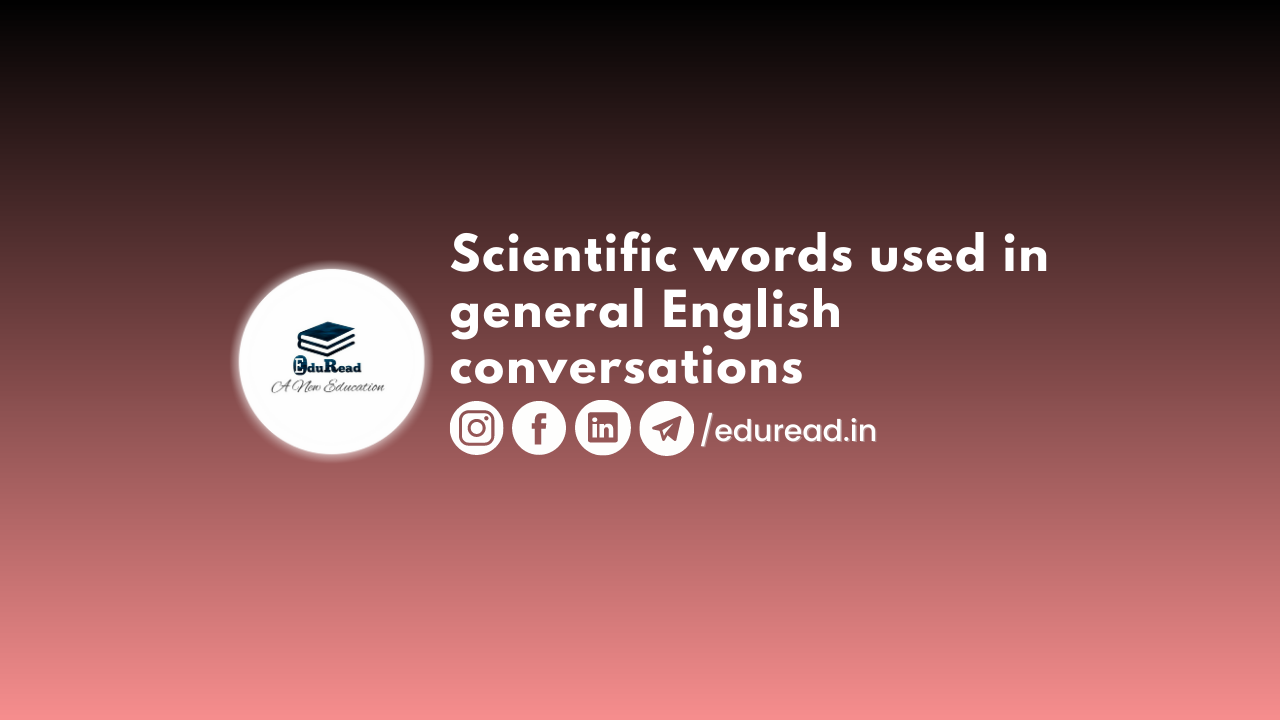Scientific words are not limited to laboratories and research papers. They have made their way into general English conversations, enriching our everyday language. In this blog post, we’ll explore the fascinating world of scientific vocabulary used in everyday conversations.
Introduction
Scientific language has permeated various aspects of our lives, from discussing health and technology to describing natural phenomena. Let’s delve into the ways scientific words have become an integral part of general English conversations.
Scientific Vocabulary in Health and Medicine
In the field of health and medicine, scientific terms are commonly used to describe ailments, treatments, and medical advancements. Words like “symptom,” “diagnosis,” and “vaccine” are now part of our everyday vocabulary, reflecting the importance of scientific research in healthcare.
Scientific Terminology in Technology and Innovation
Technology and innovation are constantly evolving, and scientific vocabulary plays a crucial role in these domains. Terms like “algorithm,” “artificial intelligence,” and “nanotechnology” have become familiar to discuss advancements in various fields, from smartphones to cutting-edge medical devices.
Environmental and Ecological Scientific Terms
As concerns about the environment grow, so does the use of scientific words related to ecology and environmental conservation. Concepts such as “biodiversity,” “carbon footprint,” and “sustainability” are frequently used in conversations about climate change, conservation, and renewable energy.
Scientific Words in Everyday Experiences
Scientific terms often find their way into our daily experiences. For instance, when discussing weather, we might use words like “humidity,” “precipitation,” and “atmosphere.” Similarly, when cooking, terms such as “chemical reaction,” “fermentation,” and “emulsion” may be employed to describe culinary processes.
Scientific Vocabulary in Education
Education is another area where scientific language is commonly used. From primary school to higher education, students encounter scientific terms such as “hypothesis,” “experiment,” and “data analysis” in subjects like biology, physics, and chemistry.
Scientific Words in Popular Culture
Scientific vocabulary has also found its way into popular culture, including books, movies, and television shows. Terms like “teleportation,” “time travel,” and “genetic mutation” are often used in science fiction, capturing the imagination of audiences worldwide.
The Influence of Scientific Language
The incorporation of scientific words into general English conversations demonstrates the influence of scientific progress on our society. It reflects our curiosity, desire for knowledge, and the impact of scientific advancements on our everyday lives.
Embracing Scientific Language
While scientific vocabulary may seem intimidating at first, embracing it can be rewarding. Learning and using scientific words expands our understanding of the world, allows us to engage in meaningful discussions, and fosters scientific literacy in society.
Conclusion
In conclusion, scientific words have become an integral part of general English conversations. From health and technology to everyday experiences, they enrich our language and reflect the progress of scientific research and innovation. So, the next time you engage in a conversation, embrace the scientific vocabulary and let it inspire your curiosity about the wonders of the world around us.
Follow Us for more such content to improve your speaking skills:
To know more, check out here: https://eduread.in/dont-say-firstly-secondly-use-better-transition-words-speak-new-york/
And visit us for more.
